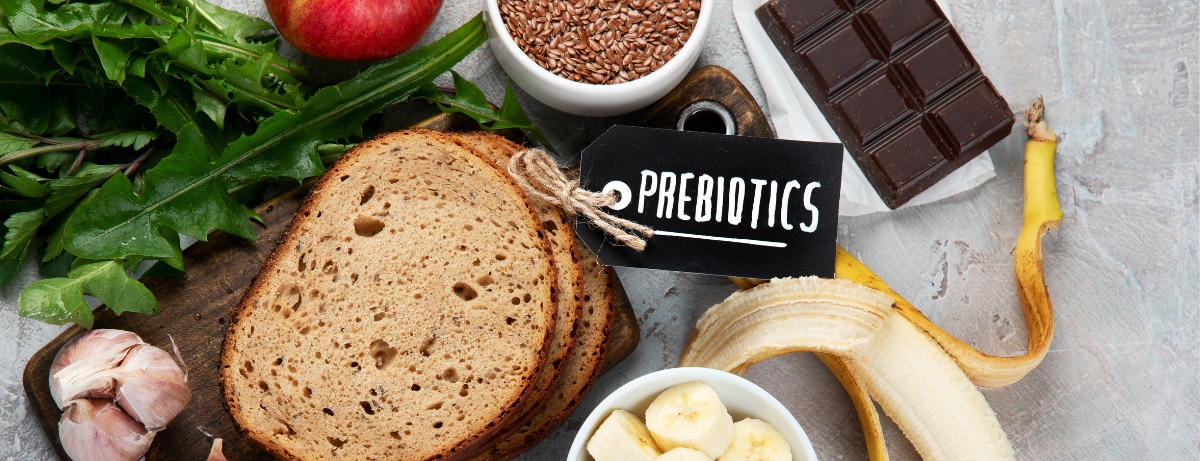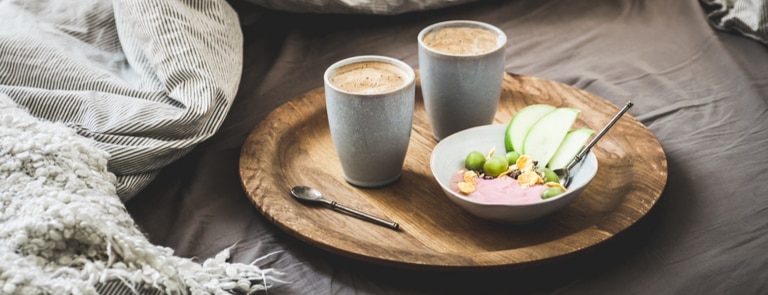20% off €35
Code:EXTRA20
What’s the candida diet?

Could your diet really thwart thrush? Get a taster of the ‘candida diet’, plus what you should know
Summary
1What’s candida?
Candida is the body’s most common fungus and is usually harmless. However, when it overdevelops, it can cause...
2What’s the candida diet?
The candida diet involves removing all flour, yeast and sugar, which you can replace with starch-free vegetables, proteins and...
3What should I eat on the candida diet?
You’re advised to cook with lean proteins, mono- and polyunsaturated fats and leafy green veg...
Thrush: maybe you’ve had it. And if you haven’t... well, you’re not missing out.
Most women, and some men, will get thrush at some point. But on the bright side this uncomfy affliction can be managed.
The culprit is a fungus called candida, and some claim ‘a special diet can help stop thrush before it even starts’. So, is there any truth behind it? Our nutritionist Chandni Vadgama answers your burning questions...
What’s candida?
Candida is the body’s most common fungus and is usually harmless.1 However, when it overdevelops, it can cause yeast infections of the mouth and vagina, which we call thrush.
Even though it’s unpleasant, the good news is thrush usually clears up in one to two days after a course of antifungal medication.2 If you’re having recurring thrush, see your GP as it can be associated with things like chronic fatigue, inflammatory bowel disease and ulcers.3,4
According to Chandni, “candida overgrowth is more common in people with a reduced immune function, as well as those who have had extensive antibiotic treatments, are very run down or who have large amounts of sugar and refined carbohydrates in their diet.”
What’s the 'candida diet'?
The candida diet involves removing all flour, yeast and sugar, which you can replace with starch-free vegetables, proteins and unsaturated (‘healthy’) fats.
According to Chandni, this is because “diets high in sugar and refined carbohydrates have been found to disrupt the balance of the gut microbiota, potentially increasing the risk of candida overgrowth. It's also beneficial to increase fibre intake and prebiotic-rich foods to help feed the beneficial bacteria in your gut.”5 In other words, you want your gut to welcome good bacteria.
Does the candida diet work?
The jury's out! Many scientists dispute whether the candida diet actually works. There’s no single recommended diet for thrush or candida. It’s important to speak to your GP if you have thrush and get the appropriate medical treatment.
However, there may be a link between certain foods and yeast growth. A recent study has revealed that certain sugars and carbohydrates encourage yeast growth.6 Another proposed that a global increase in candida may be due to increased consumption of carbohydrates.7
Dieticians who advocate the candida diet advise following the plan for six weeks, as they state it should be enough time to reset your gut’s microbiome.8
What should I know before starting the candida diet?
If you have any medical conditions, please consult your doctor before adopting the candida diet. It’s a highly restrictive diet which eliminates carbohydrates, a major food group, and should be done under supervision of a registered nutritionist or dietician and not recommended as a permanent diet plan (unless advised otherwise) as your body still needs carbs.
When you start the candida diet, you may experience symptoms like fatigue, nausea, and headaches – if these symptoms develop please seek medical attention. This is because the body’s entering a ketogenic state as it starts to burn fat now there are no carbohydrates in your system.9

Does the candida diet help with gut health?
Well, the science behind the diet plan might be limited when it comes to thrush, but emerging evidence suggests it may help inflammation in your gut. The foods you cut out are what might be feeding the candida overgrowth.
What should I eat on a candida diet?
While on a candida diet, you’re advised to cook with lean proteins, mono- and polyunsaturated fats and leafy green veg. You shouldn’t have more than 60g of carbohydrates each day though.
- wild fish
- organic, grass-fed beef
- free-range chicken
- free-range eggs
- leafy greens, like watercress, kale and spinach
- cruciferous veg, like cauliflower, broccoli and cabbage
- spices and fresh herbs
- ginger
- berries
- olive oil
- avocado
- natural probiotic food sources, like yoghurt, kombucha and kimchi
- bread
- flour-based products like pizza, bagels and pretzels
- artificially sweetened foods including chocolate, sweets and ice cream
- vinegar
- mushrooms
- dairy
- alcohol
- peanuts
You could also try supplements that include berberine, caprylic acid and activated charcoal to support you during your diet.8
The final say
So, the evidence towards this diet and thrush might be light, but the good news is that eating gut-friendly foods can’t really be a bad thing!
It’s important to do your research and make sure you’re not restricting yourself so much that it makes you miserable. And remember, any concerns around thrush or recurring thrush, speak to your GP.
If you want to know more about gut health, specifically probiotics supporting gut health and promoting vaginal health, check out our article. You can always speak to one of our highly trained in-store colleagues too, so find your nearest store...
This article provides informational advice and is not a substitute for medical care. Curated by experts for accuracy, we take great care to ensure the information is up-to-date and relevant. However, you should always consult your GP or healthcare professional before using supplements or alternative products, particularly if you have medical conditions or are under supervision.
1. Pfaller MA, Diekema DJ. Epidemiology of Invasive Candidiasis: a Persistent Public Health Problem. Clin Microbiol Rev [Internet]. 2007 Jan [cited 2025 Apr 25]; 20(1): 133-63. Available from: https://www.ncbi.nlm.nih.gov/pmc/articles/PMC1797637/
2. NHS. Thrush in men and women [Internet]. NHS [reviewed 2023 Jul 28; cited 2025 Apr 25]. Available from: https://www.nhs.uk/conditions/thrush-in-men-and-women/
3. Kumamoto CA. Inflammation and gastrointestinal Candida colonization. Curr Opin Microbiol [Internet]. 2011 Jul 28 [cited 2025 Apr 25]; 14(4): 386-91. Available from: https://www.ncbi.nlm.nih.gov/pmc/articles/PMC3163673/
4. Cater RE 2nd. Chronic intestinal candidiasis as a possible etiological factor in the chronic fatigue syndrome. Med Hypotheses [Internet]. 1995 Jun [cited 2025 Apr 28]; 44(6): 507-15. Available from: https://pubmed.ncbi.nlm.nih.gov/7476598/
5. Jawhara S. Healthy Diet and Lifestyle Improve the Gut Microbiota and Help Combat Fungal Infection. Microorganisms [Internet]. 2023 Jun 11 [cited 2025 Apr 28]; 11(6): 1556. Available from: https://pmc.ncbi.nlm.nih.gov/articles/PMC10302699/
6. Broach JR. Nutritional Control of Growth and Development in Yeast. Genetics [Internet]. 2012 Sep [cited 2025 Apr 25]; 192(1): 73-105. Available from: https://www.ncbi.nlm.nih.gov/pmc/articles/PMC3430547/
7. Hoffman C et al. Archaea and fungi of the human gut microbiome: correlations with diet and bacterial residents. PLoS One [Internet]. 2013 Jun 17 [cited 2025 Apr 25]; 8(6). Available from: https://pubmed.ncbi.nlm.nih.gov/23799070/
8. The Candida Diet. Foods to Eat on the Candida Diet [Internet]. The Candida Diet [reviewed 2024 Aug 22; cited 2025 Apr 25]. Available from: https://www.thecandidadiet.com/foodstoeat.htm
9. Harvard Health Publishing. What is keto flu? [Internet]. Harvard Health Publishing [reviewed 2018 Oct 18; cited 2025 Apr 25]. Available from: https://www.health.harvard.edu/blog/what-is-keto-flu-2018101815052




